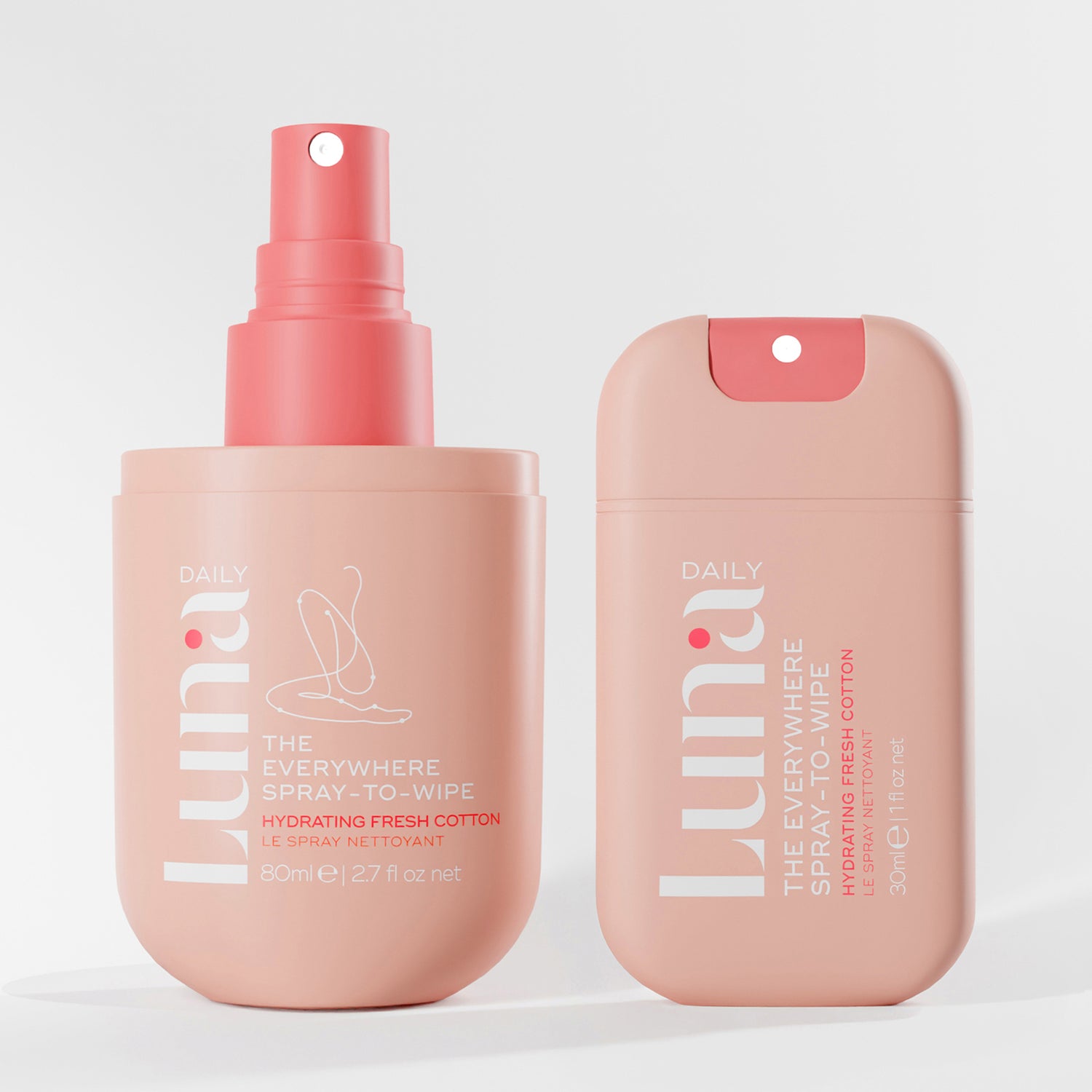Thrush affects more people than you think, in fact 3/4 women will experience thrush at some point, yet it still carries a sense of shame. We can beat the guilt game in the same way we tackle the infection: by arming ourselves with knowledge and starting a conversation.
Despite affecting 75% of women, thrush still carries an overriding feeling of shame and censorship. So let’s talk about it: what is thrush, and why shouldn’t we feel embarrassed?
Here at Luna Daily, we believe in health literacy and want to open the conversation, naturally . So let’s unpack some of your worries, and give you the full lowdown. First things first, Thrush is an extremely common vaginal infection caused by a surge of yeast known as Candida albicans. The symptoms affect the vagina and vulva, inducing a burning or itching sensation around the area and/or a distinctive white discharge that mimics the texture of cottage cheese.
Yes, it’s a widespread infection. But we tend to relegate it to the background, ignore and avoid it to the point of self-sabotage. This deep-rooted stigmatisation and circulation of misinformation stops us from seeing it for what it is—an uncomfortable, but perfectly normal, treatable condition.
What is it triggered by?
There are many misconceptions surrounding the cause of thrush, particularly that it is a sexually transmitted infection or that it is suggestive of poor hygiene. The condition can be transferred by sex, but this is very uncommon. It allows thrush to be falsely grouped into the bracket of an STI, which creates more ambiguity and anxiety regarding the infection. Thrush can be caused by stress, your period, a weakened immune system and even antibiotics. Thrush is triggered by many causes, but no single cause dominates the others.
How can it be treated?
Although the internet can be great for some things, don’t be tempted to self-diagnose and don’t be fooled by the various recommended home remedies. Go and get yourself checked by a medical professional. Most of the time, thrush simply requires prescribed antifungal tablets to dispel the infection.
What can I do to avoid it in the first place?
Well, there is no magic cure, but there are lots of things you can do to help. Above all look after yourself—focus on boosting your immune system by eating healthily and drinking plenty water. Try to avoid stress if at all possible, through regular exercise or doing something you enjoy.
One of the most important things you can do is remove damp/sweaty clothes post-workout and properly dry yourself. Stop using any vaginal douches or deodorants and choose water over soaps and shower gels to clean your vulva. Make sure you are using a pH balanced and soap free wash that is suitable for intimate skin, we recommend the Everywhere Wash. Wearing loose, cotton underwear can also help. Remember: many things can cause thrush, so these tips lower your risk— but they won't directly stop it from happening.
Opening up to the issue
A 2018 study from the University of Manchester estimated the number of women with recurrent thrush worldwide will increase to almost 158 million by 2030.
What’s clear is that thrush is a growing issue that will affect more and more women each year, so it’s time for us to ask questions and talk about it openly.
For too long these conversations have been sidelined because we feel self-conscious or worried. There is no need to feel shame over something that’s irrefutably common. Thrush is not strange and it is not taboo. Your health is important and we will continue to make it our mission to spread awareness and normalise what is ultimately normal.
Written by Libby Collins
Resources:
https://www.truthundressed.co.uk/vaginal-infections
https://www.nhs.uk/mental-health/self-help/guides-tools-and-activities/tips-to-reduce-stress/
https://www.nhs.uk/conditions/thrush-in-men-and-women/
https://www.thelancet.com/journals/laninf/article/PIIS1473-3099(18)30103-8/fulltext

